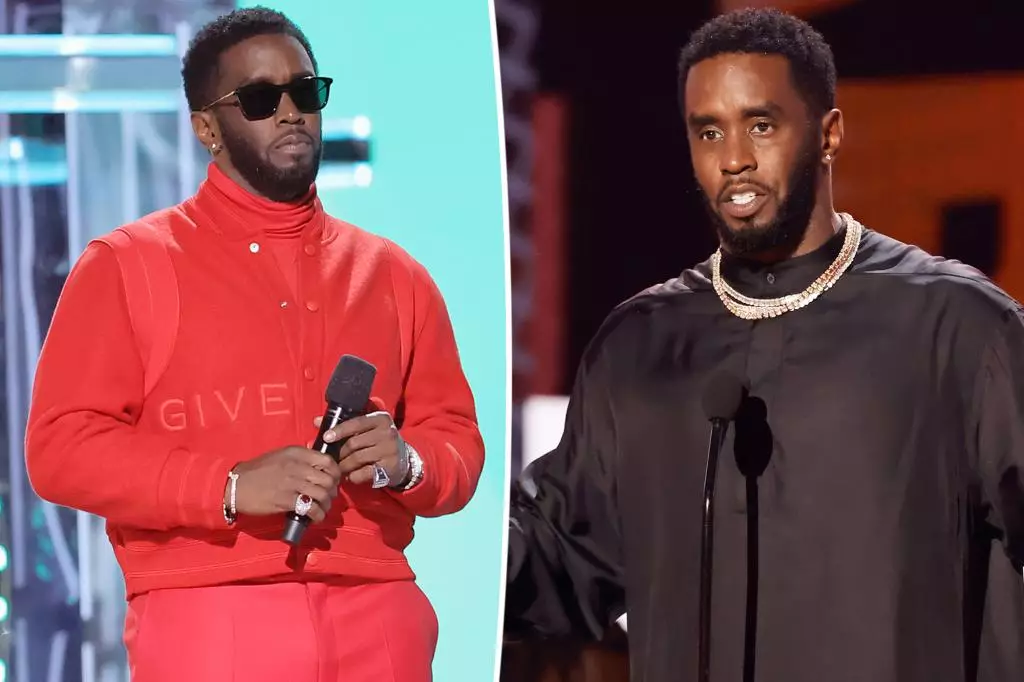The legal battle faced by Sean “Diddy” Combs, renowned rapper and music mogul, has reached a critical juncture as he prepares to testify in a case laden with serious allegations including sex trafficking and racketeering. With the looming threat of a long prison sentence, the decision to take the stand is a gamble that could either vindicate him or cement his downfall. attorney Meesha Moulton, of Meesha Moulton Law, has voiced significant concerns about this choice, providing insights into the dangers that such a decision could entail for Combs.
Moulton’s analysis serves as a stark reminder of why legal counsel often urges defendants to remain silent. Testifying entails exposing oneself to rigorous cross-examination, a process designed to find inconsistencies in a witness’s narrative and exploit them for the prosecution. Combs could find himself cornered, where subtle missteps or emotional responses may be pounced upon by a driven prosecutor. Moulton highlights the mentally taxing nature of this line of questioning, which can fluctuate between calculated precision and aggressive confrontation, designed to provoke a reaction. If Diddy were to falter under this kind of scrutiny, the potential damage to his credibility in the eyes of the jury could be irreversible.
Moulton underscores the emotional strain of standing before a jury as a defendant, especially when the stakes are so incredibly high. Courtroom drama can quickly turn into a spectacle, and Diddy’s capacity to maintain harmony amidst the turmoil could heavily influence the jury’s perception of him. If he exhibits signs of frustration or distress during his testimony, it may unjustly sway jurors, painting him as guilty, rather than innocent. She strongly recommends that Combs puts strategy at the forefront of his defense rather than succumbing to the impulse to speak his truth. A measured approach may yield more favorable outcomes.
Despite these potential pitfalls, Diddy’s attorney, Marc Agnifilo, contends that testifying could humanize his client and offer a compelling narrative. He describes the case as a “story of love, hurt, and heartbreak,” suggesting that sharing Diddy’s personal account might effectively counterbalance the prosecution’s allegations. While Moulton warns against such a course, she concedes that testimony could shift focus from the prosecution’s interpretation of evidence to Diddy’s own narrative, potentially providing depth to the jury’s understanding of his character.
Moulton elaborates on this duality by noting that presenting a well-rounded version of himself could complicate the jurors’ understanding of the allegations against him. The interplay of Diddy’s philanthropic efforts and his alleged misconduct could create a jarring cognitive dissonance, serving as a double-edged sword. By showcasing his positive contributions to society, he could instill doubt about the prosecution’s case, though this latitude hinges greatly on his ability to remain composed during cross-examination.
The legal entanglement before Combs paints a troubling picture. With a 14-page indictment detailing accusations of abuse, coercion, and the creation of a criminal enterprise, the evidence brought against him is stark. The alleged misconduct reportedly occurred during “Freak Off” parties, characterized by a hedonistic atmosphere and illicit substances. The bizarre nature of these accusations, such as over 1,000 bottles of lubricant found during police raids, complicates the narrative further.
With the trial date yet to be determined, Combs faces a cloud of uncertainty. His plea of not guilty and his steadfast claim of innocence in multiple sexual assault lawsuits suggest a fight to the finish, but Moulton advises him to consider the psychological burden that accompanies testifying. The emotional landscape of the courtroom demanded a high level of resilience.
Sean Combs stands at a crossroads where the decision to testify may signify risk management versus the opportunity for personal narrative. As he contemplates taking the stand, both he and his counsel must weigh the advantages of presenting his side against the formidable challenge of relentless cross-examination. The impending trial is not just a legal battle for Diddy but a public spectacle that may shape the contours of his legacy. Navigating this treacherous landscape will require a keen awareness of the psychological and legal ramifications that lie ahead. As October 9 approaches, the stakes remain higher than ever—both personally and professionally.

